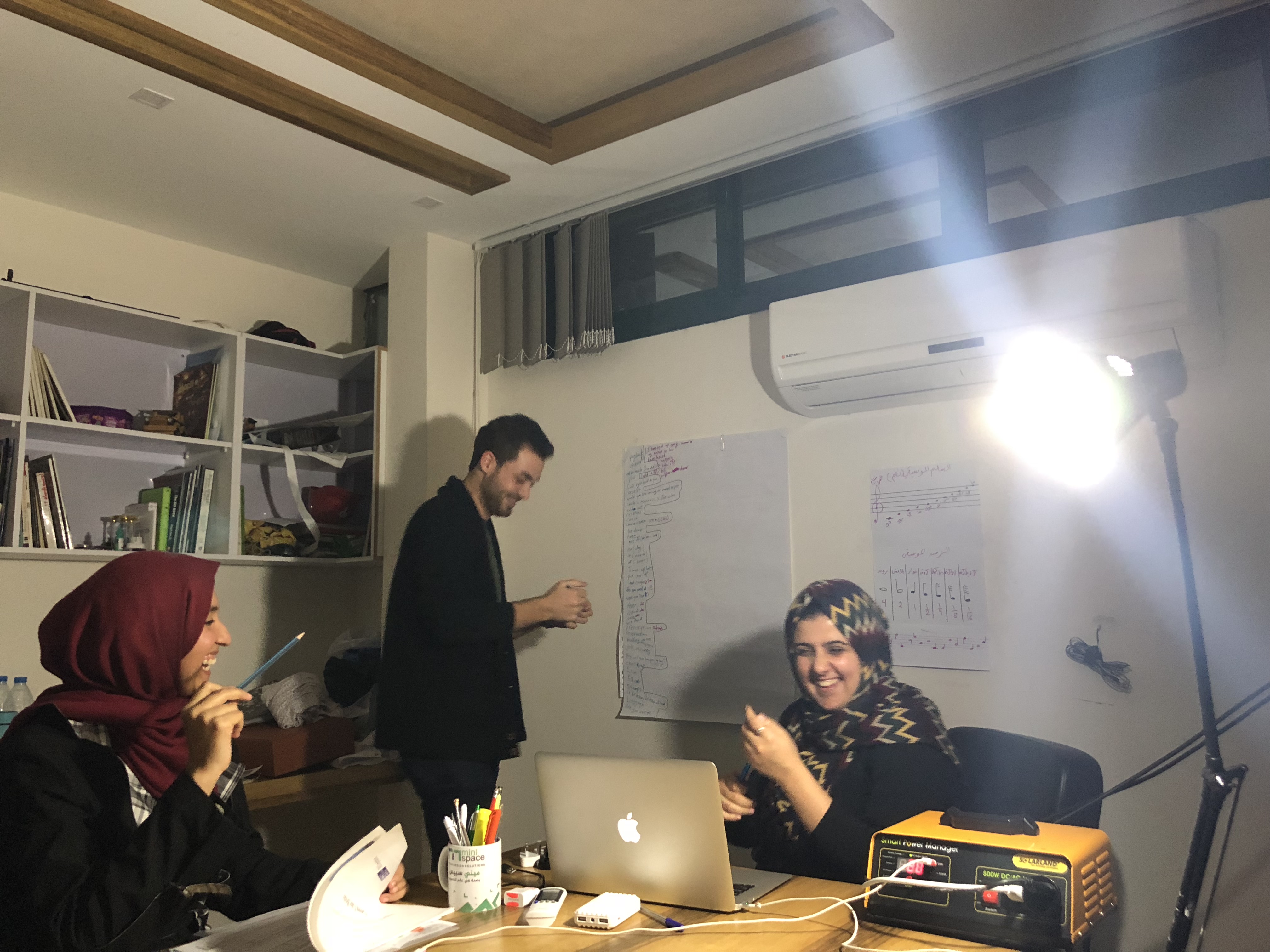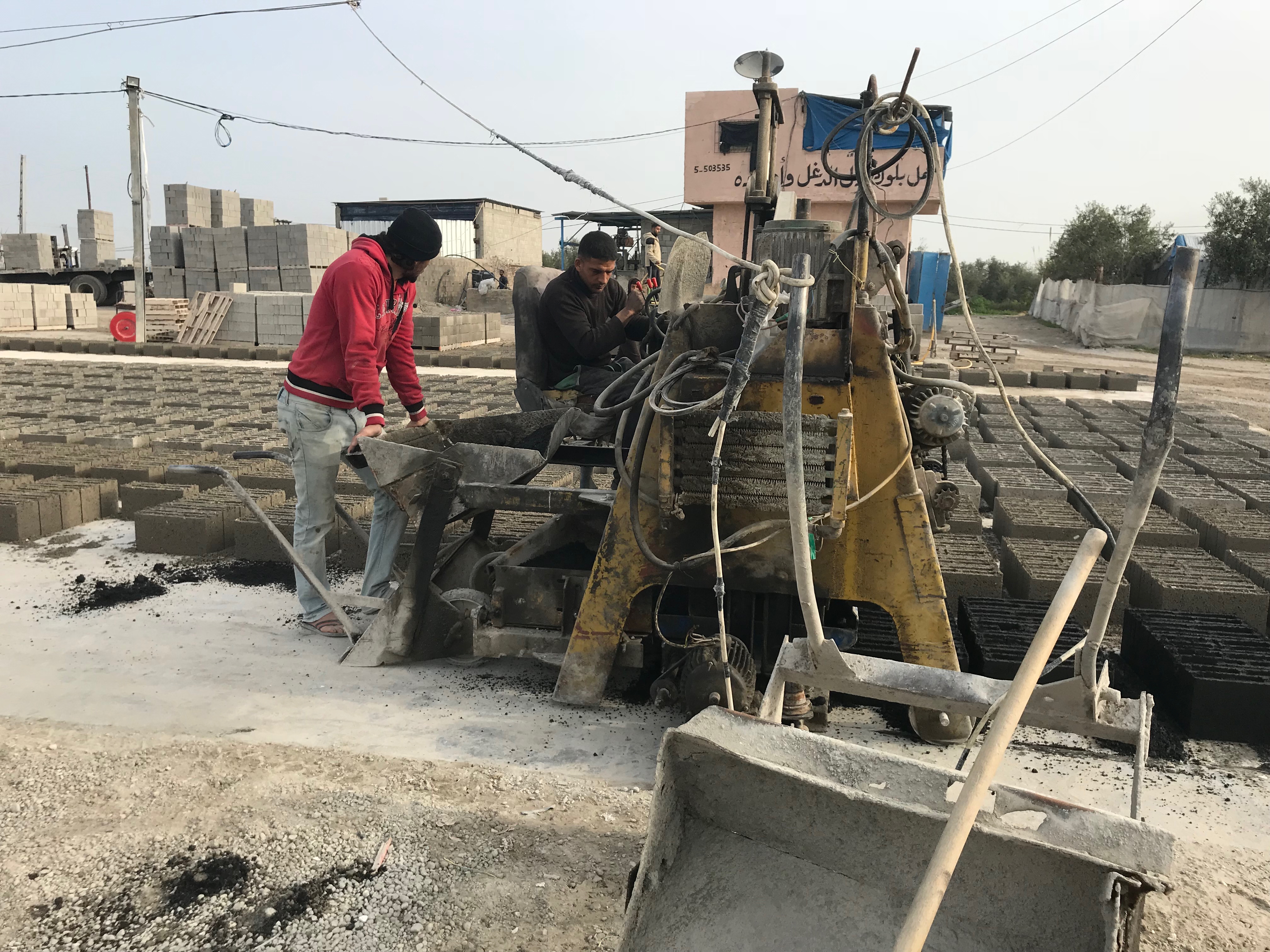We Are Not Numbers, February 23, 2018
Two of the Gaza Strip’s most pressing challenges are a blockade-induced shortage of both electricity and building materials. And, in this conservative, patriarchal society, it’s a young, female engineer who is tackling both.
Twenty-four-year-old Majd al-Mashharawi, a 2016 graduate in civil engineering, first figured out how to turn ash and rubble—of which Gaza has a lot—into a material she calls “Green Cake” that can replace cement. Now, she is turning her attention to renewable energy technologies, starting with a solar kit named SunBox. Now in the piloting phase, SunBox is, she says, the first off-the-grid solar kit in Gaza.
“Gaza has an extreme shortage of electricity—receiving just three to six hours a day. But the entire Middle East suffers from a lack of sufficient electricity,” Mashharawi says. “This severely affects both quality of life and opportunity for economic growth. But the region has a resource that can be harnessed—an average of 320 days of sunshine a year, making solar energy an ideal source of electricity production.”
Mashharawi researched solar options in use in Africa and India, where electricity outages also are common. However, she ended up turning to China for the most applicable solution. Her SunBox product is a small solar energy collection kit she imports, modifies to accommodate local electrical outlets and voltage and sells for US$355—a price her market research shows is affordable to most households. (She hopes to partner with microfinance businesses for those families who need to pay in installments.) The kit generates 1,000 watts of electricity—enough to power four lamps, two laptops, two phones, an internet router and a TV/fan/small refrigerator for a full day, before needing a “refresh” (using either the sun or the electrical grid, when available).

If the Gaza launch goes well, Mashharawi is already dreaming of expanding into other markets—West Bank refugee camps, Syrians in Jordan and off-grid Bedouin communities throughout the Middle East (perhaps the largest of the populations, at an estimated 3.2 million).
Early inspiration
Mashharawi attributes her entrepreneurial spirit to her 11th grade math teacher.
"He forced us to find a way to solve math assignments on our own—rather than simply memorizing the formulas. It was the first and most difficult challenge of my life," she recalls.
This led Mashharawi to spend her entire, three-month summer holiday figuring out the "why" behind the answers so she could compile a booklet to distribute to other students. Mashharawi considers this her first startup.
“I didn't know how to change it into a business, however,” she laughs. “I was young and unaware of how businesses work.”
Mashharawi’s independence and a yearning to travel have driven her to work hard to build a future—no minor task in a society that is both conservative, restricting women’s freedom, and oppressed by a blockade.
"I know very well that the world around us is advancing, while our lives in Gaza are frozen,” she says. “But instead of wasting time complaining about how bad our situation is, I prefer to seek solutions for problems."
Green Cake

One of those challenges confronted her family when her brother got married and her father wanted to add a floor to their home for the new couple. However, that was impossible because he could not obtain any cement. In fact, today, nearly four years after Israel's war on the Gaza Strip in the summer of 2014, an estimated 4,500 families still are living without a permanent home. Exacerbating the housing shortage is population growth and restrictions imposed by Israel on the importation of construction materials. The UN Population Fund predicts the population of Gaza, already the densest place on earth, will more than double to 4.8 million by 2050. Meanwhile, only 30 percent of the cement needed has been allowed into Gaza since the Israeli offensive.
That challenge was one of the reasons she came up with the idea for her first product, Green Cake—a material made primarily from coal or wood ash, then cured with steam—with a fellow student. The environmentally friendly brick is fire-resistant and only half as heavy as cement blocks and costs 50 percent less. Nevertheless, Mashharawi and her partner struggled to attract support at first, and the other student later abandoned the project. Fortunately, Mashharawi stuck with it.
A startup incubator run by the Islamic University of Gaza helped fund the first production round in September 2016, and now she rents office space, employing three people. To date, her company has provided the material for parts or all of three new homes.
"At first, I didn't get any help from others," she recalled. Mashharawi borrowed money to develop the project, ignoring the disapproval she received for being a woman in a traditionally man’s field. Then she heard about the Japan-Gaza Innovation Challenge, a two-day workshop and business competition. Two of the 10 competing teams were given the top prize, and Green Cake was one. Mashharawi was invited to tour Japan and then doors started opening.
"Travelling was such a big dream for me, but until then, I could never achieve it," Mashharawi says. Earlier, she had won a scholarship to study for a year in Berlin, and obtained the necessary visa, but she couldn’t get permission to leave Gaza from the Israeli government. Egypt’s Rafah crossing never opened.
“I applied several times to get a permit to leave Gaza, and each time they refused me. So, I lost the scholarship," she sadly recalls. She again was denied the opportunity to travel when she sought to travel to Dubai for the international Hult Prize competition for social-enterprise start-ups.
But this time was different; in March of last year, Mashharawi finally left Gaza for two weeks in Japan. "I was exactly like a bird finally released from a cage to fly freely into the sky,” she says.
The invention also attracted international media attention, including coverage by Fast Company in the United States and The Independent in the UK.
Later, in June, Mashharawi traveled again—this time to the United States. For three months, she studied entrepreneurship and business administration, then returned to Gaza.
“I would have been able to stay in the United States, but honestly, I wanted to come back,” says Mashharawi. “In Gaza, every day there is some new challenge, which makes it a lot more interesting. Outside of Gaza, you live for yourself only; in Gaza, I feel like I have a larger mission that can really benefit people.”
First published by The New Arab.
Posted: February 23, 2018
Mentor: Pam Bailey
